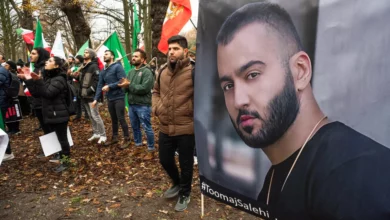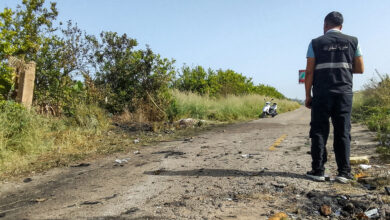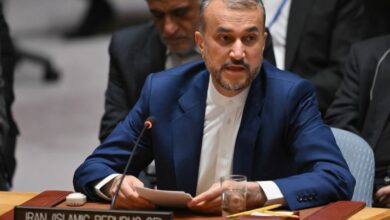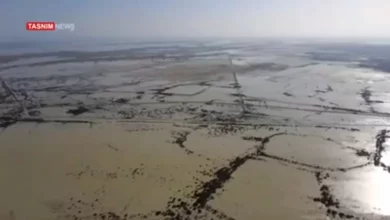In a speech yesterday celebrating Laylat al-Qadr, President Hosni Mubarak denounced the tarnishing of Islam by voices from both within the Islamic faith and outside it.
Laylat al-Qadr is the anniversary of the night Muslims believe the first verses of the Holy Quran were revealed to the Prophet Mohammed.
Ammar Ali Hassan, head of the research unit at the Middle East News Agency (MENA), says the scripts for the president’s speeches on religious occasions are always written by intellectuals and clerics in tandem, which, he believes, accounts for the typical aggression towards hardliners and extremists.
Dean of the faculty of Islamic and Arabic Studies at al-Azhar University Suad Saleh says that the president’s remarks were also aimed at the so-called “liberal intellectuals” who advocate freedom of thought, but at the same time, abuse religious texts to serve Western agendas. Saleh describes this behavior as a “blatant transgression on Muslims."
Political observers believe Mubarak's warnings against dangers encroaching on the Gulf region were directed at Iran, the Houthis insurgency in Yemen, and Bahrain, where Sunni-Shiite strife is escalating. Some think Egypt is wary of the exportation of divisive ideology harbored by some communities in these nations.
Professor of political studies Abdel Moneim al-Mashat said there is Arab and international consensus that Iran’s growing nuclear capabilities threaten the region. But he points out that the real danger lies in Israeli nuclear power, a military capability unmatched by any Arab nation.
Waheed Abdel Meguid, expert at al-Ahram Center for Political and Strategic Studies, says the Gulf region is endangered by sectarian unrest in Bahrain, a societal rift Tehran allegedly has fomented.
“Egypt is busy handling Iran but only verbally, unlike Iran which is taking devilish and destructive actions and has its own plan for the region”, Abdel Meguid argues. He says Egypt’s inconsistent stance on accepting or barring visits by Iranian officials evidences his argument.
Gamal Salama, professor of political science at the Suez Canal University, says both the US and Iran threaten the Gulf region. “Gulf states rebuff the Iranian role, but welcome the American influence."
Salama adds that Mubarak’s remarks might have something to do with his recent visit to the US, where he may have heard about military strike possibilities on Iran.
Translated from the Arabic Edition.




